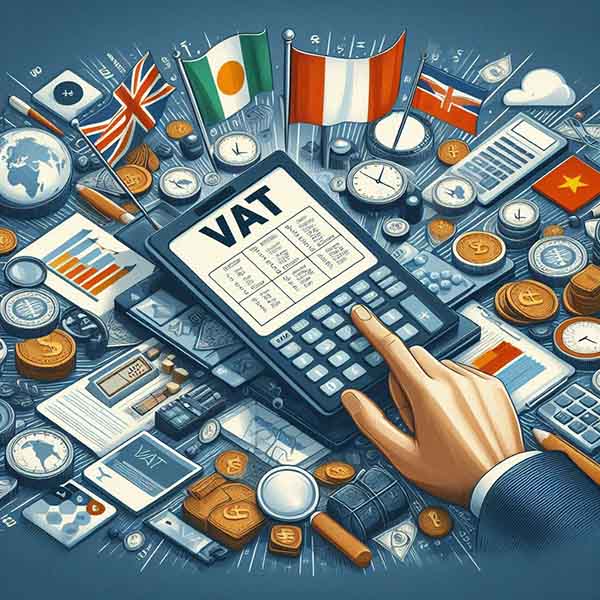As businesses increasingly operate across borders, understanding Value Added Tax (VAT) becomes crucial. VAT is a consumption tax levied on goods and services at each stage of production or distribution. In this blog post, we'll explore how VAT applies to cross-border transactions and offer practical tips for businesses navigating this complex landscape.
- Basics of VAT:
- What Is VAT?: VAT is a tax on the value added to a product or service at each stage of its production or distribution. Unlike sales tax, which is typically paid by the end consumer, VAT is collected at multiple points in the supply chain.
- VAT Rates Different countries have varying VAT rates, ranging from single-digit percentages to over 20%. It's essential to know the applicable rate for each jurisdiction.
- Cross-Border Transactions:
- Import VAT: When goods are imported into a country, import VAT is levied. Businesses need to account for this cost when calculating the overall landed cost of imported goods.
- Export VAT: Exported goods are generally exempt from VAT. However, businesses must follow specific procedures to ensure compliance.
- Practical Tips:
- Register for VAT: If your business engages in cross-border transactions, consider registering for VAT in relevant countries. This allows you to reclaim input VAT and comply with local regulations.
- VAT Recovery: Keep detailed records of VAT paid on expenses related to cross-border activities. You can often recover this input VAT through the VAT recovery process.
- Reverse Charge Mechanism: In some cases, the reverse charge mechanism applies. This means the recipient, rather than the supplier, accounts for VAT. Understand when and how to apply this rule.
- Digital Services: For digital services (e.g., software, streaming), the VAT rules differ. Familiarize yourself with the Mini One-Stop Shop (MOSS) scheme for simplified reporting.
Navigating international VAT requires diligence, awareness, and expert advice. By understanding the basics, complying with regulations, and implementing practical strategies, businesses can manage VAT effectively in cross-border transactions.
Published: 5/2/2025 7:30:00 PM


